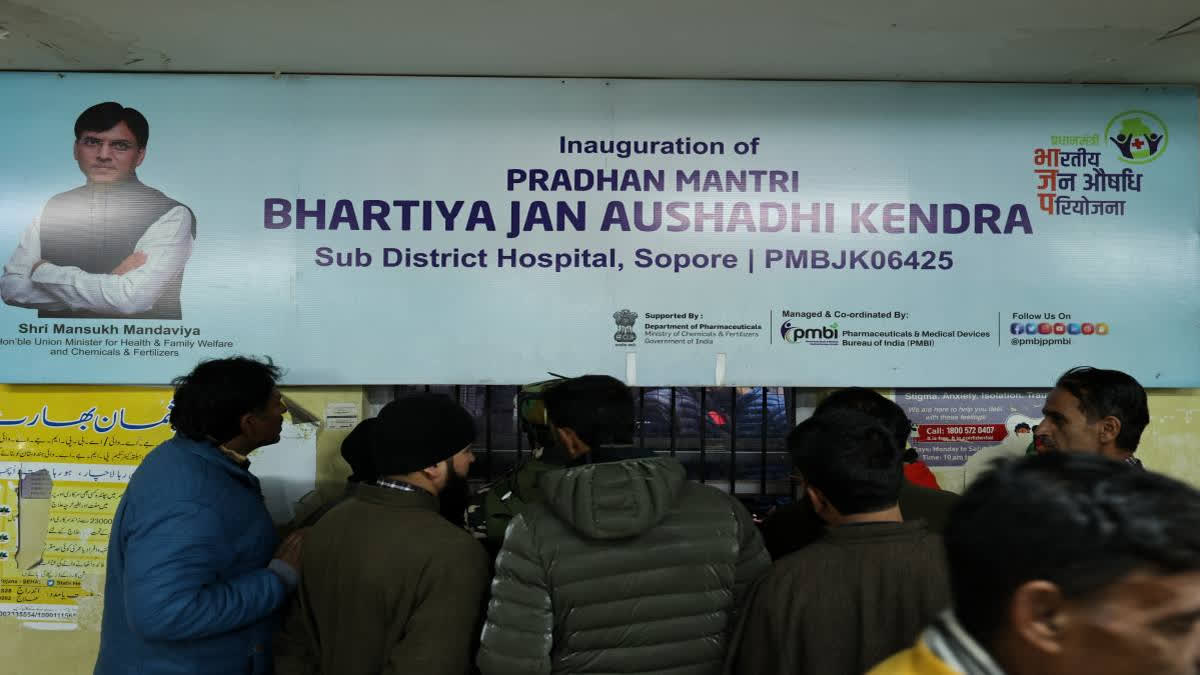Hyderabad: In a concerted effort to raise awareness about generic medicines and make quality healthcare accessible, the first week of March is celebrated as 'Jan Aushadhi Saptah' or Generic Medicine Week, culminating in 'Jan Aushadhi Diwas' or Generic Medicine. The initiative, inaugurated in 2019 by Prime Minister Narendra Modi, aims to inform people about the use of generic medicines and spotlight the Government of India's endeavours to provide affordable healthcare for all.
Understanding Generic Drugs: Generic drugs, created to mirror existing brand-name medications in various aspects, including dosage form, safety, strength, route of administration, quality, and intended use, offer an equivalent clinical benefit. India, a global leader in generic drug production and export, plays a pivotal role in making healthcare more affordable worldwide.
The Need for Generic Medicines in India: As healthcare costs escalate in India, pushing households, especially the middle class, to their financial limits, the emphasis is on generating awareness about cost-effective, high-quality generic drugs. With approximately 60% of Indian households lacking health insurance, out-of-pocket healthcare expenses contribute significantly to the financial burden, plunging many into a cycle of debt.
Role of Jan Aushadhi Kendras: Jan Aushadhi Kendras, operating under the Pradhan Mantri Jan Aushadhi Pariyojana (PMBJP), act as warriors against medical poverty. These centres provide generic drugs at prices capped at 50% of the average cost of the top three branded medicines. Consequently, Jan Aushadhi Medicines are at least 50% cheaper, and sometimes 80% to 90% less expensive than their branded counterparts, offering substantial savings to consumers.
Pradhan Mantri Bhartiya Janaushadhi Pariyojana (PMBJP): Launched in November 2008 by the Department of Pharmaceuticals, Ministry of Chemicals & Fertilisers, PMBJP has significantly contributed to making generic medicines more accessible. As of November 30, 2023, there are 10,000 functional Jan Aushadhi Kendras across India. The PMBJP has saved around 1000 crores in 2023, marking a milestone in the history of generic medicines in the country.
PMBJP’s Impact on Affordability and Accessibility: PMBJP's approach to pricing, ensuring medicines are affordable for all, has translated into enormous savings for the public. For example, Telmisartan 40 mg tablets, which cost Rs 72 per unit under various brand names, are available as generic versions for around Rs 12 per unit. The success of PMBJP is evident as it has saved the country's citizens approximately 5000 crores by offering medicines through Jan Aushadhi Kendras.
Future Goals and Expansion: With a commitment to serving more communities and reaching a broader audience, PMBJP has set a target to open 25,000 Jan Aushadhi Kendras across the country by March 2026. The initiative continues to grow, with over 1,700 medicines and 200 surgical items available at these stores. More than 10 lakh people visit these stores daily, reflecting the increasing trust and reliance on affordable generic medicines.
Indian Pharmaceutical Industry and Generic Drugs: India's pharmaceutical industry, ranked third globally by volume and 13th by value, manufactures over 60,000 generic drugs across 60 therapeutic categories. The market for Indian generic drugs is expected to grow steadily, with a compound annual growth rate (CAGR) of 6.97% during the forecast period, reaching USD 24.53 billion in 2022.



